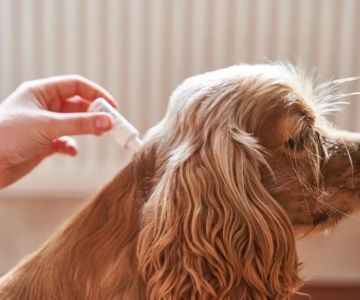Best Calming Aids for Anxious Pets During Visits to the Vet
1. Understanding Why Pets Become Anxious at the Veterinary Clinic
Many American pet owners experience the same scenario: the moment the carrier comes out or the leash is clipped on, their beloved pet begins trembling, panting, or hiding. Anxiety during vet visits is extremely common, especially for cats, dogs, and even small animals. The unfamiliar smells, new faces, bright lights, and memories of previous procedures can trigger fear responses.
A true story from a family in Colorado illustrates this well. Their usually calm Golden Retriever, Daisy, became extremely nervous during routine check-ups, pacing around the exam room and whining. After discussing the behavior with a veterinarian, they learned Daisy associated the clinic with a painful ear infection treatment she had once received. This lesson highlights how associative memory, environmental stressors, and sensory overload all contribute to veterinary anxiety.
Understanding this emotional root helps pet parents choose effective calming aids, training approaches, and safe strategies to ease their pet’s fear before, during, and after the visit.
2. Vet-Approved Calming Aids That Help Reduce Stress
2.1 Natural Supplements for Calm Behavior
Many natural supplements can promote relaxation without sedation. Common ingredients include L-theanine, chamomile, passionflower, and valerian root. These are widely used in the United States and are generally safe when used according to veterinary recommendations.
Some calming chews combine multiple botanicals with amino acids to support the nervous system. For pets who refuse pills, liquid formulas or soft chews are easier options. Pet owners often report seeing improvements within 30–60 minutes after use.
2.2 Pheromone-Based Solutions
Pheromone diffusers, sprays, and collars mimic the natural calming signals animals release. For dogs, products containing dog-appeasing pheromones help reduce fear-based behaviors. For cats, synthetic feline facial pheromones work extremely well in unfamiliar environments.
A cat owner in Texas shared that using a pheromone spray on the carrier lowered their cat’s vocalizing and trembling significantly. These solutions are especially helpful for multi-pet households that experience collective stress when one animal becomes anxious.
2.3 Calming Treats and Functional Snacks
Calming treats are one of the most popular anxiety aids because they feel like a reward rather than medicine. Many brands include magnesium, L-tryptophan, or melatonin to support overall relaxation. They are ideal for pets with mild to moderate anxiety.
For American pet owners who frequently travel or schedule regular grooming sessions, keeping a bag of calming treats on hand can make transitions easier. Veterinarians often recommend giving them 30–45 minutes before arriving at the clinic.
2.4 Weighted Clothing and Anti-Anxiety Wraps
Pressure wraps apply gentle, consistent pressure that can soothe pets the same way swaddling comforts babies. These vests are popular across the U.S. because they are drug-free, reusable, and effective for many pets.
Dogs that fear thunderstorms often benefit from these wraps, and the same calming effect can transfer to vet-related anxiety. For best results, let your pet wear the vest at home first to build positive association before incorporating it into vet visits.
2.5 Prescription Medications
For pets with severe anxiety, veterinarians may recommend prescription medications. These are tailored to the pet’s size, breed, age, and medical conditions. Prescriptions should be used under veterinary supervision only.
Some pets may require long-term anxiety management, while others benefit from single-dose situational medication. A veterinarian can evaluate which approach is safest and most effective.
3. Training and Behavior Techniques to Reduce Anxiety Naturally
3.1 Desensitization at Home
Helping your pet adapt to vet-visit routines at home can significantly lower stress. This includes practicing entering a carrier, riding in a car, and being handled around the paws, ears, and mouth. Repeated gentle exposure can make the real visit feel far less intimidating.
3.2 Counter-Conditioning With Positive Reinforcement
Rewarding calm behavior shifts the emotional response from fear to confidence. Using treats, praise, or a favorite toy during mock “checkups” at home builds trust. Over time, pets begin associating vet visits with rewards rather than fear.
3.3 Creating Familiarity Through Scent
Familiar scents calm pets by activating positive memories. Bringing a blanket, a favorite toy, or even a piece of clothing with your scent can help your pet relax inside the clinic.
4. Preparing for the Vet Visit: Step-By-Step Tips
Preparing properly before a veterinary appointment can greatly reduce anxiety. Here are effective steps:
- Schedule visits during quiet clinic hours to minimize waiting room stress.
- Allow extra time before the appointment so your pet stays relaxed during transport.
- Play calming music in the car to reduce sensory overload.
- Use pheromone sprays on the carrier or seat cover 15 minutes before leaving home.
- Bring high-value treats for reassurance throughout the visit.
These simple steps can transform the overall experience, making appointments smoother for both pets and owners.
5. What to Do After the Appointment
After returning home, allow your pet time to decompress. Provide a quiet space, a familiar bed, and plenty of affection. Some pets may feel exhausted after the emotional intensity of a vet visit. If your pet becomes unusually withdrawn, discuss the behavior with your veterinarian to make sure no lingering stress or discomfort persists.
Many U.S. families find success by keeping consistent routines and scheduling visits at the same clinic, allowing pets to become familiar with the environment over time.
Choosing the Best Solution for Your Pet
Every pet experiences stress differently, so a combination of calming aids, behavior training, and veterinary guidance usually works best. If you're unsure which calming method is most suitable, visiting a trusted provider such as Hidden Brook Veterinary can ensure your pet receives professional, compassionate care tailored to their needs.












